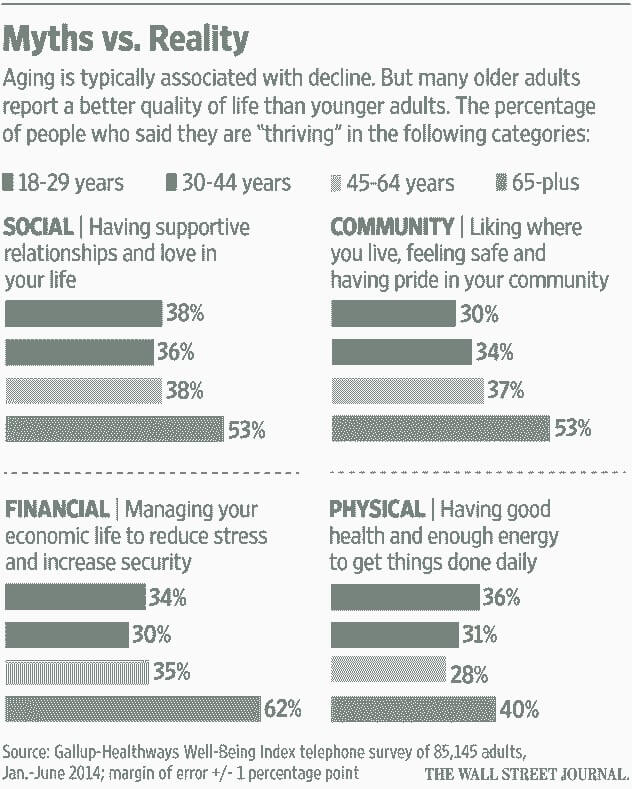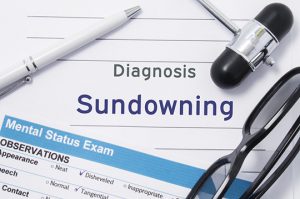Choosing to specialize in geriatric nursing—also called gerontological nursing--can be a great decision, no matter where you are in your career. Caring for adults who are 65 years and older is both challenging and meaningful. If your perception of gerontology is restricted to administering medications and cleaning up after clients with dementia, we’re here to expand your thinking.
The American Geriatrics Society cites studies showing that working with older clients is one of the most satisfying career paths: “Geriatrics healthcare professionals cite their encounters with inspirational older adults, the deep and meaningful relationships they develop, and the typically steady work hours as significant factors adding to their job satisfaction.”
Career benefits of choosing gerontology
Every area of nursing has distinct advantages. If you think that specializing in geriatric nursing could be a good fit, here are some benefits:
- Jobs are plentiful and stable. With the aging of Baby Boomers, the need for nurses to care for older clients is expected to remain high for decades. The U.S. Bureau of Labor Statistics (BLS) projects that opportunities for all nurses will increase 7% annually through 2029, faster than the average of other occupations.
- With the trend to discharge inpatient clients as soon as possible, geriatric nurses have flexibility in choosing their work environment: clinic, outpatient, rehabilitation, assisted living, community, home health, and retirement facilities.
Medical supply companies also employ nurses.
- Major medical centers are recognizing the importance of special units that focus on the specific physiological needs of older adults. Dedicated medical, surgical, and intensive care units are being designed and will require specialized nursing care. There can also be opportunities for education and research.
- BLS reports median annual pay for nurses in 2020 at $75,330, or $36.22 per hour. The median pay for all U.S. workers is $41,950. Nurses who earn certification as a Gerontological Nurse may be eligible to earn more, depending on their employer.
- You can begin to work in gerontology as a new ADN or BSN graduate; there are no prerequisites for choosing this specialty.
- After two years of nursing experience, 2000 hours (approximately one year, full-time) of gerontological nursing, and 30 hours of continuing education in geriatric nursing, you are eligible to apply for Gerontological Nursing Certification. American Nurses Credentialing Center (ANCC) handles the process. After you pass, you can add Gerontological Nurse-Board Certified (GERO-BC) to your credentials; it’s valid for five years.
Changing the stereotype of “old”
There is no doubt that the body declines with age. But that doesn’t mean people stop functioning. It’s actually the opposite! Today, older adults are redefining what it means to be 60, 70, 80…and beyond.
Here are some interesting facts about older adults in the 21st century:
- They aren’t automatically retiring at 62 or 65. Some people continue to work because they can’t afford to retire. Others simply love their jobs and the benefits, including being around co-workers. They may shift from full-time to part-time, or transfer to a less demanding or more interesting position. The U.S. Bureau of Labor Statistics reports that at least 19% of people ages 70-74 work at least part time.
- They’re tech-savvy. Not every older person knows everything about the latest technology, but they also aren’t sitting around waiting for the Pony Express. Pew Research Center found that almost 70% of those 65 and older go online every day and engage on social media. And while they prefer getting news from traditional sources, such as print newspapers, they are more knowledgeable about current events.
- They love to travel and learn. An example: Road Scholar (formerly Elderhostel) was formed in 1975 by two friends who rejected the belief that minds and bodies automatically fail as people age. Targeted for adults over age 50, Road Scholar combines the lifelong loves of travel and learning. It offers 5,500 programs around the world, serving over 100,000 older adults each year.
More myth-busters about aging
The Wall Street Journal conducted a 2014 poll on Well-Being, surveying over 85,000 adults on their perceptions of aging. How adults under the age of 65 years and those 65 and over viewed different aspects of getting older is dramatic. The poll (by Gallup-Healthways) also found that 61% of 65-74 year-old respondents felt younger than they were, as well as 57% of those over 75 years-old!

Skills and attributes to be a successful gerontological nurse
Along with providing safe and efficient care, using critical thinking, and being well-organized, a gerontological nurse should also have these skills and attributes:
- Empathy: People become more vulnerable as they age and their needs increase. They fear being a burden and may be reluctant to ask for help. Empathy is necessary to see the client’s experience through their eyes.
- Patience: Older clients move more slowly. They may have balance and musculoskeletal issues, or other conditions that require extra time. They may take longer to respond to questions, or simply want to tell a story.
- Resourcefulness: How can you help a client remain independent when they have multiple medical, social, or financial issues? Geriatric nurses must also sometimes be magicians—or so it seems to their clients.
- Advocacy: Ageism is rampant, even in healthcare. Physicians often overtreat or undertreat elderly clients. “Elderspeak,” calling clients “dear, little lady, or sweetie,” is demeaning. Nurses should advocate for their clients.
- Critical thinking: Because of polypharmacy, organ and metabolic changes, and other issues (social, financial), a geriatric nurse is constantly challenged to assess all aspects of a client’s life when planning and providing care.
The Comprehensive Geriatric Assessment (CGA)
As a geriatric nurse, you do much more than provide physical care. Healthcare extends beyond medical management. The nurse is part of a multidisciplinary team that assesses each client in order to identify problems, plan treatment, and coordinate strategies that lead to a positive outcome. The Comprehensive Geriatric Assessment (CGA) is used for clients who can benefit from an intensive evaluation, such as over the age of 85 years, medical or surgical reasons, or psychosocial disorders.
Components of a CGA include:
- functional capacity (the ability to drive and perform other basic, instrumental, and advanced ADLs)
- fall risk
- cognition
- mood
- social support
- financial concerns
- goals of care
- advance care preferences
- polypharmacy
Optionally, some CGAs may also include:
- nutrition or recent weight changes
- urinary incontinence
- sexual function
- vision/hearing
- dentition
- living situation
- spirituality
Are you ready to become a geriatric nurse specialist?
If you like to be challenged and want to be on the front line of a constantly growing branch of medicine, here are five excellent reasons to become a geriatric nurse specialist:
- 1
There is no “typical” client.
No other stage of life offers clients with such a range of health and ability. There is no “normal” when it comes to older clients. One 70-year-old may have COPD, hypertension, and arthritis, while another 70-year-old has no chronic illness, but was recently diagnosed with multiple sclerosis. Still another 70-year-old can compete in a 5K race after her hip replacement.
- 2
Older adults have complicated medical needs.
Unlike most childhood or adulthood clients, “elderhood” clients often develop several medical conditions that require simultaneous management. Gerontological nurses must perform specific assessments and use critical thinking to manage the unique needs of each client. Because the human body’s ability to move, perceive, react, and remember declines with age, the nurse is constantly trying and adopting new strategies.
- 3
Independence is the priority.
The predominant geriatric demographic is the Baby Boomers, born between 1946 and 1964. They represent a third of the U.S. population—78 million people over the age of 60. Boomers were raised to be independent and they’re not about to give that up as they get older. They still want to travel, learn, and exercise. Geriatric nurses help them maintain their abilities and achieve their goals, which has a positive effect on their health.
- 4
Building relationships is a bonus.
Nurses often comment that they don’t get enough time to know their clients personally. Compared to other stages of life, geriatric clients visit their healthcare providers ten times as often. Because they require more screenings and assessments, the nurse can spend time talking with clients and building authentic relationships. Knowing a client well is also valuable in being able to detect small differences in their condition, allowing for early intervention.
- 5
Gerontology is not hospice.
Too often, both professionals and the public equate elderhood with actively dying. The truth is that clients over the age of 60 are enjoying their lives. A study of adults aged 21-100 years published in The Journal of Clinical Psychiatry found that the elderly were happier than young adults. Researchers report that older people are more resilient; they let go of loss or disappointment and readjust goals for their own wellbeing. If, or when, hospice becomes necessary, other nurses who specialize in hospice or palliative care will care for the client.
No nursing job is perfect: The downsides of geriatric nursing
Every branch of medicine has its pros and cons. Here are some of the drawbacks of specializing in geriatrics:
- The emotional cost of caring for older adults can lead to burnout. Burnout is a threat to all areas of nursing, but in geriatric nursing, the cause is that clients don’t improve and eventually die.
- A general lack of appreciation for gerontology can be frustrating; it’s not a “sexy” specialty. In her book, Elderhood, author and geriatric physician Louise Aronson discusses the lack of resources and respect for those who choose to treat the elderly.
- Geriatrics tends to be understaffed, so the workload can be higher than other nursing specialties. As the population ages and the demand for more and better healthcare increases, organizations will provide necessary budgets and additional resources for the elderly.
- Working with older clients requires physical strength and stamina. Assisting clients to stand, walk, and reposition takes muscle. Nurses must take precautions to avoid injuring themselves while providing care.
Gerontological nursing—like every other specialty—is not for everyone. If the idea of making the last years of a person’s life as important as their first years, it may be perfect for you. As one geriatric healthcare professional says, “I get to time travel to different eras and cultures, because older people are so willing to share their life stories.”
 By
By 



